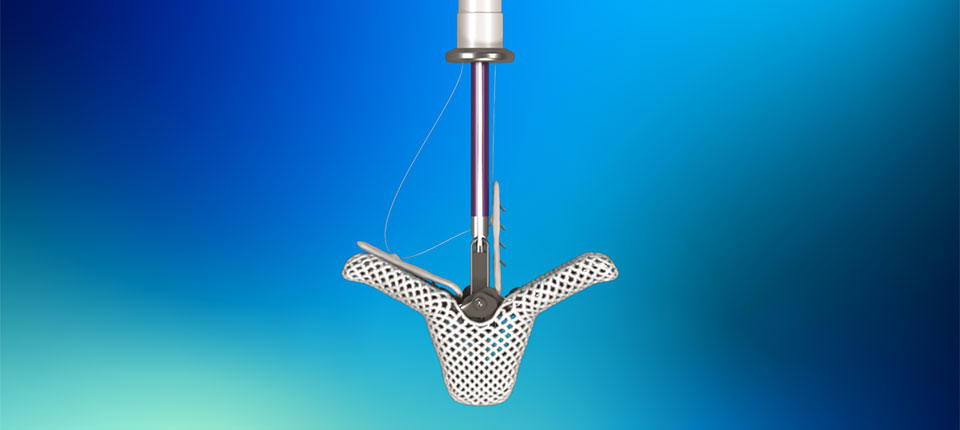Important Safety Information
TRICLIP™ G4 SYSTEM
Rx Only
INDICATIONS
The TriClip™ G4 System is indicated for improving quality of life and functional status in patients with symptomatic severe tricuspid regurgitation despite optimal medical therapy, who are at intermediate or greater risk for surgery and in whom transcatheter edge-to-edge valve repair is clinically appropriate and is expected to reduce tricuspid regurgitation severity to moderate or less, as determined by a multidisciplinary heart team.
CONTRAINDICATIONS
The TriClip G4 System is contraindicated in patients with the following conditions: Intolerance, including allergy or untreatable hypersensitivity, to procedural anticoagulation; Untreatable hypersensitivity to implant components (nickel-titanium alloy, cobalt-chromium alloy); Active endocarditis or other active infection of the tricuspid valve. POTENTIAL
ADVERSE EVENTS
The following events have been identified as possible complications of the TriClip™ G4 Procedure. Allergic reactions or hypersensitivity to latex, contrast agent, anaesthesia, device materials and drug reactions to anticoagulation, or antiplatelet drugs; Additional treatment / surgery from device-related complications; Bleeding; Blood disorders (including coagulopathy, hemolysis, and Heparin Induced Thrombocytopenia (HIT)); Cardiac arrhythmias (including conduction disorders, atrial arrhythmias, ventricular arrhythmias); Cardiac ischemic conditions (including myocardial infarction, myocardial ischemia, and unstable / stable angina); Cardiac perforation; Cardiac tamponade; Chest pain; Death; Dyspnea; Edema; Embolization (device or components of the device); Endocarditis; Fever or hyperthermia; Fluoroscopy, Transesophageal echocardiogram (TEE) and Transthoracic echocardiogram (TTE) -related complications: Skin injury or tissue changes due to exposure to ionizing radiation, Esophageal irritation, Esophageal perforation, Gastrointestinal bleeding; Hypotension / hypertension; Infection including: Septicemia; Nausea / vomiting; Pain; Pericardial effusion; Stroke / Cerebrovascular accident (CVA) and Transient Ischemic Attack (TIA); System organ failure: Cardio-respiratory arrest, Worsening heart failure, Pulmonary congestion, Respiratory dysfunction / failure / atelectasis, Renal insufficiency or failure, Shock (including cardiogenic and anaphylactic); Thrombosis; Tricuspid valve complications, which may complicate or prevent later surgical repair, including: Chordal entanglement / rupture, Single Leaflet Device Attachment (SLDA), Dislodgement of previously implanted devices, Tissue damage, Tricuspid valve stenosis, Worsening, Persistent or residual regurgitation; Vascular access complications which may require additional intervention, including: Wound dehiscence, Bleeding of the access site, Arteriovenous fistula, pseudoaneurysm, aneurysm, dissection, perforation / rupture, vascular occlusion, Embolism (air, thrombus), Peripheral nerve injury; Venous thromboembolism (including deep vein thrombosis, pulmonary embolism). CAUTION: Product(s) intended for use by or under the direction of a physician. Prior to use, reference to the Instructions for Use, inside the product carton (when available) or at https://www.eifu.abbott/ for more detailed information on Indications, Contraindications, Warnings, Precautions and Adverse Events.
